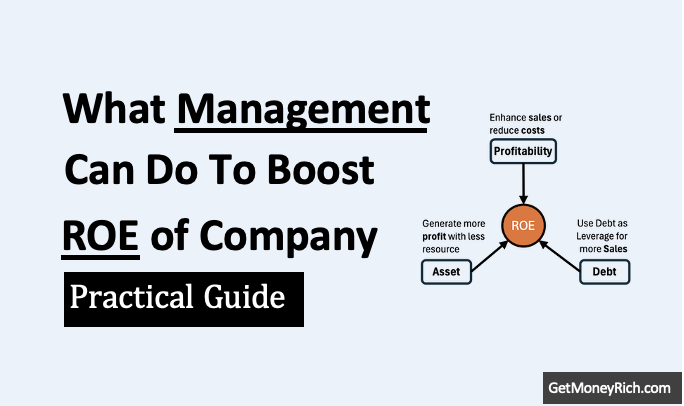Test your stock investing knowledge using our innovative online calculator. It’s a test designed using 28 comprehensive questions. This interactive tool provides a personalized evaluation of your stock investing skills. From basic concepts to complex analysis, challenge yourself and receive a percentage score that reflects your expertise. You can use this calculator to quantify the extent of your knowledge of stocks.
In the dynamic world of stock investing, having a solid understanding of stocks and the market is essential. It will help to make informed investment decisions. That’s where online calculators like these play a crucial role.
These calculators provide individuals, like yourself, with a quantifiable measure of their stock investing knowledge. One of the primary reasons why such calculators are required is to evaluate the depth and breadth of one’s stock investing knowledge. They offer an opportunity for self-assessment, allowing individuals to gauge their expertise and identify areas where further learning and improvement is needed.
StockInvest IQ: Assessing Your Investing Acumen [Calculator]

Let’s gain some basic stock investing knowledge here:
Introduction
In the fast-paced and ever-evolving world of stock investing, knowledge is power. The importance of having a solid understanding of stocks, markets, and investment strategies cannot be overstated. It is the bedrock upon which successful investment decisions are made and can have a profound impact on one’s financial well-being.
Recognizing this significance, we present an article that delves into the realm of stock investing knowledge. We are also offering a unique tool to assess and quantify your understanding of stock investing: the StockInvest IQ calculator.
The purpose of this article is to shed light on the critical role that stock investing knowledge plays in achieving investment success. By providing readers with an accessible and interactive tool, the StockInvest IQ calculator, we aim to empower individuals to evaluate their knowledge and skills in the world of stock investing.
Through a series of carefully crafted questions, this calculator will assess your grasp of essential concepts, analytical techniques, and risk management strategies.
The impact of stock investing knowledge on investment success cannot be overstated. Those who possess this know-how have a distinct advantage. They can navigate the complexities of the stock market. Conversely, a lack of knowledge can lead to misguided choices, excessive risk-taking, and ultimately, poor investment outcomes.
Let the StockInvest IQ calculator do an assessment. By taking this test, you will gain valuable insights into your strengths and weaknesses, identifying areas where further learning and development are needed. It serves as a compass, guiding you towards a path of continuous improvement and enhancing your investment acumen.
Understanding Stock Investing
Stock investing is a popular and potentially lucrative way to grow wealth and achieve financial freedom. However, it requires a solid understanding of the basics. Careful consideration of the potential benefits and risks involved is also necessary.
Let’s explore the fundamentals of stock investing, including what stocks are and how they work.
What is stock investing?
Stock investing involves buying shares or ownership stakes in publicly traded companies. When you purchase a stock, you become a shareholder and have a claim on the company’s assets and earnings.
Stocks are typically traded on stock exchanges, such as the Bombay Stock Exchange (BSE) or National Stock Exchange (NSE). Here the buyers and sellers come together to execute transactions. Know more about the stock market from here.
Goal of stock investing
The primary goal of stock investing is to generate a return on investment (ROI). This can occur in two ways. First is through capital appreciation, where the stock price increases over time. The second is through dividends, which are a portion of the company’s profits distributed to shareholders.
Investors choose to hold stocks for the long term. They aim to benefit from the company’s growth and increase in value. A few known investors are Warren Buffett, Peter Lynch, Late Rakesh Jhunjhunwala, etc. Check 5 Golden Rules of Stock Investing.
People can also engage in short-term trading to take advantage of price fluctuations. These people are called traders, they are not investors but speculators. Though it is also true that very trained speculators can also make money from stock trading.
Benefits of stock investing
Stock investing offers several potential benefits.
- Growth: It provides an opportunity to participate in the growth of successful companies, potentially yielding significant returns. Read about the concept of multibagger stocks.
- Liquidity: Stocks offer liquidity. They can be bought and sold relatively easily using online portals and mobile apps. Read about how to invest in the share market.
- Diversification: Investing in a diversified portfolio of stocks can help spread the risk of loss. Diversification reduces the impact of individual company performance on overall returns. Learn more about diversification: how to invest large sums of money.
Risks associated with stock investing
It is also crucial to acknowledge the risks associated with stock investing.
Prices of most stocks remain very volatile. The price is influenced by various factors such as economic conditions, market sentiment, and company-specific events. There is always the possibility of making a loss in stock investing. If the company performs poorly or goes bankrupt, the risk of loss is very high. For such companies, the stock price can crash very fast.
Even surrounding conditions can influence the price of individual stocks. Like it happened during the subprime mortgage crisis (2008-09), Brexit, and Covid-19 (2020). Global factors can cause fluctuations that impact stock prices. The challenge is to learn to time the market which is really challenging task and for most people, it is also impossible.
The Importance of Stock Investing Knowledge
Having a solid understanding of stock investing is paramount for individuals seeking to build long-term wealth. Knowledge is the foundation upon which successful investment decisions are made. It plays a pivotal role in shaping an investor’s journey.
Let’s delve into the significance of stock investing knowledge and how it can positively impact investors.
Analyzing Stocks
A key benefit of stock investing knowledge is the ability to analyze stocks effectively. Investors equipped with the necessary knowledge can read and interpret financial statements. This helps in the evaluation of the company’s fundamentals and in formulating key financial ratios.
It enables the person to make informed judgments about a company’s value, growth prospects, and financial health.
A deep understanding of fundamental analysis techniques equips investors to identify high-quality stocks and make sound investment decisions.
Identifying Investment Opportunities
Stock investing knowledge empowers investors to spot investment opportunities that may be overlooked by others. It can be done by staying informed about market trends, industry developments, and emerging sectors.
This is the way knowledgeable investors can identify undervalued stocks or companies with strong growth potential.
This insight enables them to capitalize on market inefficiencies and potentially achieve superior investment returns.
Managing Risks
The stock market is inherently unpredictable, and risks abound. However, investors armed with stock investing knowledge are better equipped to manage and mitigate these risks.
How to mitigate the risks? Through proper risk assessment, portfolio diversification, and an understanding of different investment strategies. This way, knowledgeable investors can construct a well-balanced portfolio that aligns with their risk tolerance and investment objectives.
Additionally, knowledge enables investors to identify warning signs and indicators of potential market downturns. It insight allows them to make informed decisions to protect their investments.
Continuous Learning and Adaptation
Stock investing knowledge is not static; it requires ongoing learning and adaptation. The market landscape evolves, new investment instruments emerge, and regulations change. Investors who prioritize knowledge are better prepared to adapt to these changes and refine their strategies as needed.
By staying informed through reading or seeking advice from professionals, investors can continually enhance their stock investing knowledge. This way they continually improve their decision-making abilities.
Knowledge enhancement is a must in stock investing. One cannot afford to cling only to the old theories and practices. Though the age-old value investing theories of Benjamin Graham is still relevant, new investing skills will assist further.
Improving The Knowledge
Enhancing stock investing knowledge is a continuous process that can significantly benefit investors in making informed decisions and achieving better investment outcomes.
In this section, we will explore some practical steps and recommend valuable resources to aid in your learning journey.
- Read Books: Consider reading renowned titles such as “A Random Walk Down Wall Street” by Burton Malkiel. You can also read “Common Stocks and Uncommon Profits” by Philip Fisher. These books offer valuable insights into fundamental analysis, value investing, and stock market dynamics.
- Refer to Online Portals: There are websites such as Investopedia and Morningstar that offer a vast array of articles, tutorials, and market analysis. Subscribe to their newsletters or follow their social media channels to receive updates. You can also follow this blog on Twitter and Telegram.
- Use Online Tools: You can also use an online tool like our Stock Engine. It can help one to screen potential stocks and provide a report on individual stocks. It is basically a fundamental analysis tool. Apps like these provide updated information and analysis about stocks.
Continuous learning and practice are key to improving stock investing knowledge. It’s important to apply what you learn. Try to do your own analysis and buy a stock. The whole process of analysis, buying, and holding will give you a different perspective of stock investing.
Conclusion
One valuable tool for assessing stock investing knowledge is the stock investing knowledge calculator provided in this blog post. This calculator allows readers to quantify the extent of their knowledge and gain insights into their strengths and areas for improvement.
By taking the assessment, readers can gauge their understanding of various concepts and identify potential gaps in their knowledge. This self-assessment tool serves as a valuable starting point for further learning and growth.
However, it is essential to remember that the journey to expanding stock investing knowledge doesn’t end with the assessment. Instead, it should serve as a catalyst for continuous learning and improvement. The way to do it is by reading and watching the latest news on companies and the stock market in general. You can also subscribe to good blogs and financial portals.
I hope you’ll like using the calculator provided in this article.
Have a happy investing.



